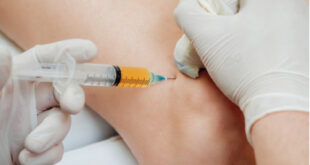Bladder cancer typically affects older adults and is very rare in children. About 90 percent of all bladder cancer is diagnosed in people over 55; the average age at diagnosis is 73.
There are some definite gender differences as well. In the U.S., bladder cancer is among the most common cancers in men, according to the American Cancer Society. Overall, the chance men will develop bladder cancer during their lifetime is about 1 in 28. For women, the chance is about 1 in 91.
The Basics of Bladder Cancer
The bladder is part of the body’s urinary tract. The main job of the bladder, a hollow organ located in the lower pelvis, is to store urine. When we urinate, the muscles in the walls of the bladder contract, forcing urine out of the bladder through a tube called the urethra.
The wall of the bladder has several layers made up of different kinds of cells. When the DNA in these cells changes, the cells can grow out of control and form a tumor. These abnormal cells can break away and spread.
Most bladder cancers, about 90 percent, start in the cells on the surface of the innermost lining of the bladder. The most common form of bladder cancer is called urothelial carcinoma, a non-muscle invasive cancer in which the tumor stays within the bladder’s inner lining.
Invasive bladder cancers grow into deeper layers of the bladder wall and may spread to nearby lymph nodes or other organs and parts of the body, such as the bones, lungs or liver.
Warning Signs & Symptoms
The symptoms of early-stage bladder cancer are often obvious, which can lead to early detection and more effective treatment.
The early stages can cause bleeding but no pain. Blood in the urine can appear pinkish, brown or bright red. Blood in the urine does not always mean bladder cancer is present, but it should be reported to your doctor promptly.
Sometimes no blood is visible in urine but can be detected through a lab test. Other signs and symptoms can include frequent or painful urination, difficulty urinating, a weak urine stream or back pain.
More advanced bladder cancer can cause other symptoms, including being unable to urinate, lower back pain on one side, swelling in the feet or bone pain, fatigue, loss of appetite and weight loss.
There is no screening test for bladder cancer. If your healthcare provider suspects cancer may be present, various tests can help confirm a diagnosis.
Bladder Cancer Treatment
When found in early stages, bladder cancer is highly treatable.
Treatment depends on the type, stage and grade of the tumor, as well as the patient’s overall health, and may include more than one type. Early-stage tumors are usually removed during a procedure called cystoscopy and transurethral resection of bladder tumor (TURBT). Surgery to remove the entire bladder and nearby lymph nodes may be recommended for patients with muscle-invasive bladder cancer.
Even after successful treatment, bladder cancers can come back. Follow-up tests may continue for years after treatment to detect any recurrence.
What’s Your Risk?
Research has shown that smoking causes about half of all bladder cancers in both men and women. Smokers are at least three times as likely to get bladder cancer as non-smokers due to the harmful chemicals that can accumulate in the urine and damage the bladder’s lining.
Certain industrial chemicals have been linked to bladder cancer, and exposure to these chemicals can place people at higher risk. The industries where chemical exposures are more likely include:
– Manufacturing of dyes, rubber, leather and textiles
– Painting and printing
– Photography, if using film-developing chemicals
– Hairdressers (through exposure to hair dyes)
– Truck drivers (through exposure to diesel fumes)
Previous cancer treatment can increase the risk as well. Patients who received radiation treatment aimed at the pelvis or treatment with certain anti-cancer drugs have a higher risk of developing bladder cancer.
Chronic inflammation of the urinary tract or repeated urinary infections may also increase risk.
As with many forms of cancer, family history can play a role.
We cannot control some common risk factors for bladder cancer, such as age and gender. However, we can take steps to reduce risk:
• Don’t smoke.
• Be careful around chemicals. If you must work with chemicals, know and follow all safety instructions.
• Eat healthy foods. A diet rich in fruits and vegetables may help reduce your risk for many types of cancer.
Talk with your doctor or other healthcare provider for helpful tips and resources to make healthy lifestyle choices and changes.
New Options Through Clinical Trials
Advancements in the diagnosis and treatment of all forms of cancer continue at a rapid pace, thanks to ongoing clinical research. Clinical trials have played a significant role in these advancements, now saving more lives. Patients participating in these safe and carefully supervised groundbreaking research studies receive the latest treatments available, which can positively impact their outcomes.
WORLD-CLASS CANCER TREATMENT, CLOSE TO HOME
About Florida Cancer Specialists & Research Institute, LLC: (FLCancer.com)
Recognized by the American Society of Clinical Oncology (ASCO) with a national Clinical Trials Participation Award, Florida Cancer Specialists & Research Institute (FCS) offers patients access to more clinical trials than any private oncology practice in Florida. The majority of new cancer drugs recently approved for use in the U.S. were studied in clinical trials with Florida Cancer Specialists participation.* Trained in prestigious medical schools and research institutes, our physicians are consistently ranked nationally as Top Doctors by U.S. News & World Report.
Founded in 1984, FCS has built a national reputation for excellence that is reflected in exceptional and compassionate patient care, driven by innovative clinical research, cutting-edge technologies and advanced treatments, including targeted therapies, genomic-based treatment, and immunotherapy. Our highest values are embodied by our outstanding team of highly trained and dedicated physicians, clinicians and staff.
Florida Cancer Specialists & Research Institute
Delray Beach
5130 West Linton Boulevard, Suite B-4
Delray Beach, FL 33434
Lake Worth
4801 S. Congress Avenue, Suite 400,
Lake Worth, FL 33461
Palm Beach Gardens
3401 PGA Blvd, Suite 200
Palm Beach Gardens, Florida 33410
Wellington North
1037 S State Road 7, Suite 303
Wellington, Florida 33414
West Palm Beach
1309 North Flagler Drive
West Palm Beach, Florida 33401
For more information, visit FLCancer.com
 South Florida Health and Wellness Magazine Health and Wellness Articles
South Florida Health and Wellness Magazine Health and Wellness Articles




